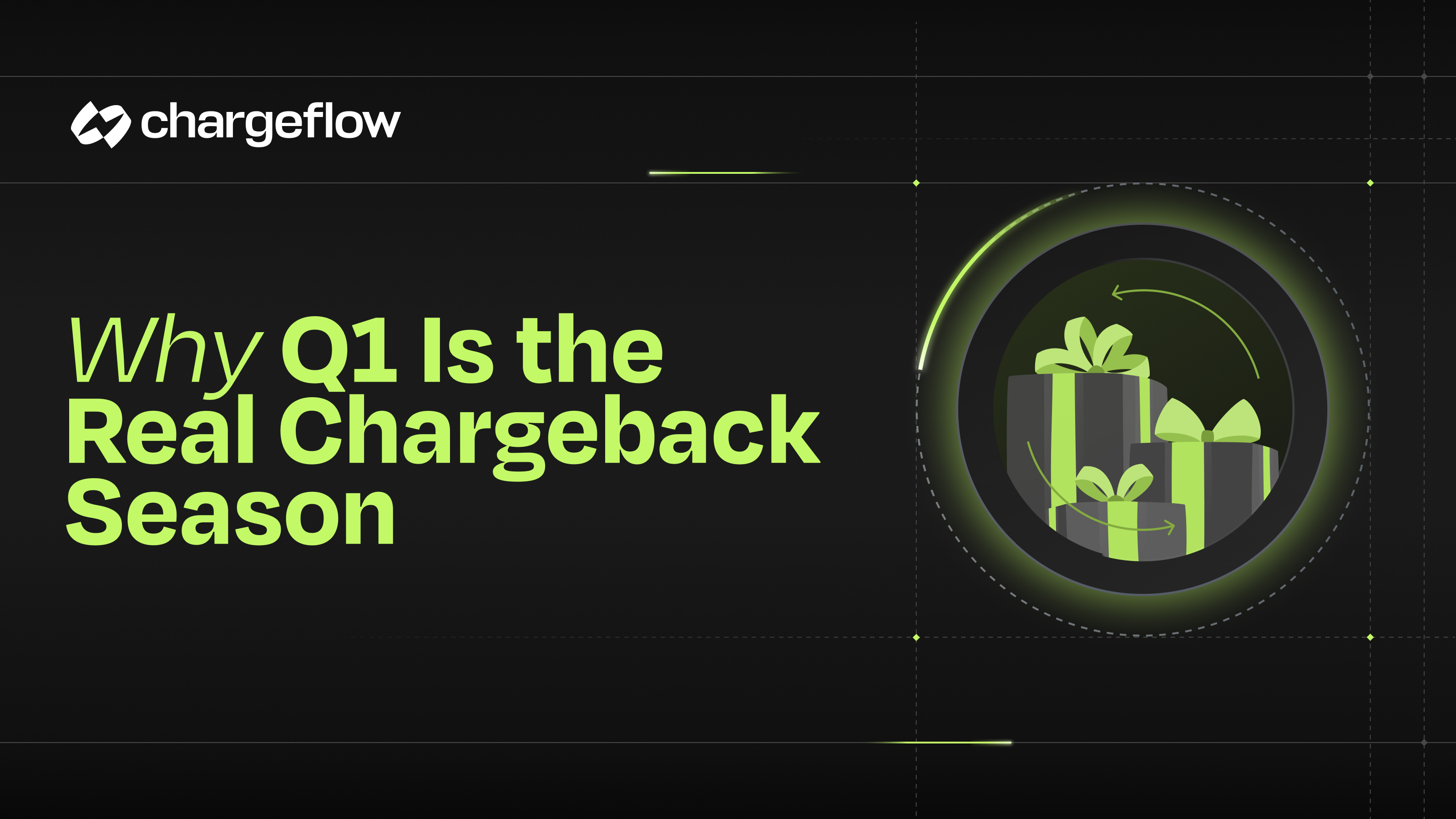How to Win a Debit Card Chargeback Dispute as a Merchant?

Chargebacks?
No longer your problem.
Recover 4x more chargebacks and prevent up to 90% of incoming ones, powered by AI and a global network of 15,000 merchants.
Is your business prepared for debit card chargebacks? Stay informed and avoid costly disputes with our comprehensive guide for merchants.
As an e-commerce merchant, you’re no stranger to the need for fraud protection—especially when it comes to debit card transactions. Debit cards provide fast access to your customers’ funds, making them a very popular payment method. But that convenience makes them vulnerable to chargebacks due to fraudulent activity or customer disputes.
To avoid costly losses and protect your business from chargeback risk, you must understand how dispute resolution works with debit card payments and know how to fight back successfully if you are hit by a chargeback.
In this blog post, we will walk you through the process of disputing any debit card-related chargebacks, and what steps merchants can take to win these types of disputes.
Understanding Debit Card Chargebacks
Definition of debit card chargebacks
The concept of debit card chargebacks holds significant importance in the world of electronic transactions, ensuring a firm foundation of trust between consumers and financial institutions.
Essentially, a debit card chargeback refers to a reversal of a transaction amount that had initially been deducted from a customer's account, due to reasons such as unauthorized or fraudulent charges, damaged goods, or service disputes.
As a robust consumer protection mechanism, a chargeback enables customers to file disputes with their financial institution, which then investigates the matter diligently. Upon validation of the claim, the institution restores the disputed amount to the customer's account, subsequently seeking reimbursement from the merchant's financial institution.
By instituting debit card chargebacks, the financial ecosystem maintains a crucial balance in safeguarding consumer rights while promoting fair trade practices.
Reasons for debit card chargebacks
Debit card chargebacks are a concerning issue for e-commerce store owners, as they can lead to lost revenue and damaged reputations.
There are various reasons behind this growing problem, with some chargebacks stemming from customer dissatisfaction, such as receiving damaged, counterfeit, or incorrect items, as well as experiencing delays in shipping.
Unauthorized transactions also contribute to the rise in chargebacks, as cases of fraud and identity theft become increasingly prevalent. Furthermore, technical issues can cause unintended duplicate charges, leading customers to file chargebacks to rectify erroneous transactions.
E-commerce businesses need to understand these reasons and implement strategies, including robust security measures and transparent communication, to minimize the prevalence of chargebacks and maintain a positive customer relationship.
Debit Card Chargeback process and timeline
The Debit Card Chargeback process plays a crucial role in ensuring a fair and trustworthy shopping experience for both consumers and e-commerce stores. This process pertains to the return of funds to the buyer, initiated due to various reasons such as fraudulent transactions, undelivered goods, and services, or billing errors.
Once the buyer files a chargeback claim, e-commerce stores are presented with the opportunity to dispute it by providing evidence supporting the legitimacy of the transaction.
Depending on the card network, the timeline for such a process can take up to 45 to 120 days or even more, during which constant communication and cooperation between buyers, sellers, and financial institutions is essential to resolving the dispute amicably.
Thus, understanding the chargeback process and its timeline benefits e-commerce businesses in protecting their revenue and reputation, as well as preserving the overall trust in online retail transactions.
Tips to Avoid Debit Card Chargebacks
Debit card chargebacks can be a significant headache for merchants, as they can result in lost revenue, fees, and damage to their reputation. Fortunately, there are several steps that merchants can take to minimize the likelihood of chargebacks. Here are some tips to help avoid debit card chargebacks:
1. Providing clear product descriptions
One of the primary reasons customers initiate chargebacks is because they received a product that did not match the description. To avoid this, merchants should provide detailed and accurate product descriptions that include all relevant information, such as size, color, materials, and any potential limitations or restrictions.
2. Timely shipping and delivery
Late or missing deliveries can also lead to chargebacks. Merchants should ensure that they have a reliable and efficient shipping process and that they promptly update customers on any delays or issues that may arise. Providing tracking information and estimated delivery dates can also help manage customer expectations.
3. Keeping proper records
Maintaining accurate records of all transactions and customer interactions is critical in the event of a chargeback dispute. Merchants should keep detailed records of all sales, refunds, shipping information, and communication with customers.
4. Responding to customer inquiries and complaints
Prompt and courteous communication with customers can help prevent chargebacks. Merchants should be responsive to customer inquiries and complaints and work to resolve any issues promptly and satisfactorily. Clear and effective communication can help prevent misunderstandings and dissatisfaction that could lead to chargebacks.
How to Win a Debit Card Chargeback Dispute?
1. Gather and document evidence
Gathering and documenting evidence plays a crucial role in winning a debit card chargeback dispute. To strengthen your case, it is essential to adopt a meticulous approach in collecting any relevant documentation, including receipts, invoices, email correspondence, or even dated photographs.
Keep in mind that substantial and well-organized evidence is more likely to sway the card issuer or the financial institution in your favor. Moreover, accurately presenting the chronological order of events connected to the dispute can streamline the investigation process, making it easier for the involved parties to verify the authenticity of your claim.
As a result, possessing a comprehensive compilation of evidence not only increases your chances of success but also demonstrates your commitment to resolving the issue efficiently and professionally.
2. Respond promptly to the chargeback notice
Dealing with a debit card chargeback dispute can be a frustrating and challenging experience; however, it is essential to promptly respond to the chargeback notice to increase your chances of a favorable outcome.
Timely response to the notice will not only demonstrate your professionalism and commitment to resolving the issue, but it will also provide you with an opportunity to gather and submit the necessary evidence to support your case.
Keep in mind that financial institutions often have specific deadlines for submitting a response, so delaying your response could result in an automatic loss of the dispute.
By proactively addressing the chargeback notice, you are positioning yourself for a stronger possibility of a successful resolution promptly, ultimately preserving your financial standing and reputation.
3. Provide compelling evidence to prove the legitimacy of the transaction
In the quest to win a debit card chargeback dispute, providing compelling evidence to prove the legitimacy of the transaction is of paramount importance. As a merchant, it is essential to have transparent, well-documented and organized proof that supports the authenticity of the transaction in question.
It may include signed receipts, invoices, delivery confirmations, correspondence between the merchant and the customer, or any other relevant documentation. By clearly demonstrating that the transaction was authorized, accurately processed, and fulfilled following the agreed-upon terms, a merchant not only safeguards their interests but also fosters confidence among other customers.
A thorough and diligent approach to gathering and presenting this evidence can vastly increase the chances of a successful outcome in a debit card chargeback dispute, while simultaneously illustrating the merchant's dedication to maintaining a trustworthy and professional business environment.
4. Engage in effective communication with the customer's bank
Navigating a debit card chargeback dispute requires strategic communication with your customer's bank. The ability to engage in effective communication plays a vital role in ensuring a successful resolution.
A professional and solution-oriented approach will showcase your commitment to addressing the issue fairly and promptly. It's essential to gather all necessary documentation, such as transaction records or proof of services rendered, to bolster your case.
Providing clear, concise, and accurate details about the transaction in question enables the bank to make an informed decision while reviewing the dispute.
Timely responses to the banks' inquiries and a willingness to cooperate will go a long way in fostering a positive and cooperative relationship between your business and the bank, ultimately increasing your chances of winning the debit card chargeback dispute.
Remember, the way you engage with the customer's bank will reflect on your reputation and credibility as a business, so take this opportunity to demonstrate your commitment to excellence and fair dealing.
5. Consider professional assistance
In an era where online transactions have become the norm, e-commerce store owners frequently encounter the daunting challenge of chargebacks. Chargebacks occur when customers dispute transactions, often leading to financial losses and damaged reputations for businesses.
In such situations, seeking professional assistance can be a game changer. Engaging a fully-automated chargeback management company, such as Chargeflow, can help alleviate this burden.
By leveraging their expertise and cutting-edge technology, you can efficiently address the dispute resolution process, minimize the risk of chargebacks, and focus on growing your business.
Finding the right partner not only bolsters your financial security but also enhances the overall customer experience, empowering you to navigate the complex world of e-commerce with confidence.
Common Mistakes to Avoid
Winning a debit card chargeback dispute can be challenging, especially if merchants make common mistakes that weaken their case. Here are some common mistakes to avoid when responding to a chargeback:
1. Ignoring chargeback notices
Ignoring a chargeback notice is one of the most common mistakes that merchants make. Failing to respond promptly can result in an automatic loss of the dispute, and the merchant may be liable for the full amount of the chargeback.
2. Failing to provide adequate evidence
Merchants need to provide compelling evidence to prove the legitimacy of the transaction and that the customer received the product or service they paid for. Failing to provide sufficient evidence can lead to an automatic loss of the dispute.
3. Lacking attention to detail
Chargeback disputes require attention to detail and accuracy. Merchants should carefully review all documents, such as invoices, receipts, and shipping information, to ensure that they are correct and complete. Any discrepancies or errors could weaken the merchant's case.
4. Not seeking professional assistance when needed
Chargeback disputes can be complicated and time-consuming, and merchants may benefit from seeking professional assistance, such as from a chargeback management company or an attorney. Failing to seek help when needed can lead to unnecessary losses and damage to the merchant's reputation.
Final Thoughts on Debit Card Chargebacks
Debit card chargebacks are a matter to be taken seriously, especially for merchants who rely on them for their livelihood. Knowing how chargebacks work and what triggers them are important steps to take when trying to reduce the number of disputes received from this method of payment.
Additionally, understanding how merchants can win a dispute is critical in successfully defending your business’s rights as a seller. Merchants should carefully review the recipient’s information before submitting payments, provide detailed receipts with order descriptions, and speak directly with their customers should an issue arise.
Ultimately, merchants need to do everything they can to protect against chargebacks and fight any disputes raised against them. Luckily, Chargeflow autopilot solutions can help ease the burden off merchants by assisting in preventing chargeback and preparing winning cases. Start taking advantage today and prevent unnecessary losses caused by chargebacks!

Chargebacks?
No longer your problem.
Recover 4x more chargebacks and prevent up to 90% of incoming ones, powered by AI and a global network of 15,000 merchants.
















































.png)








